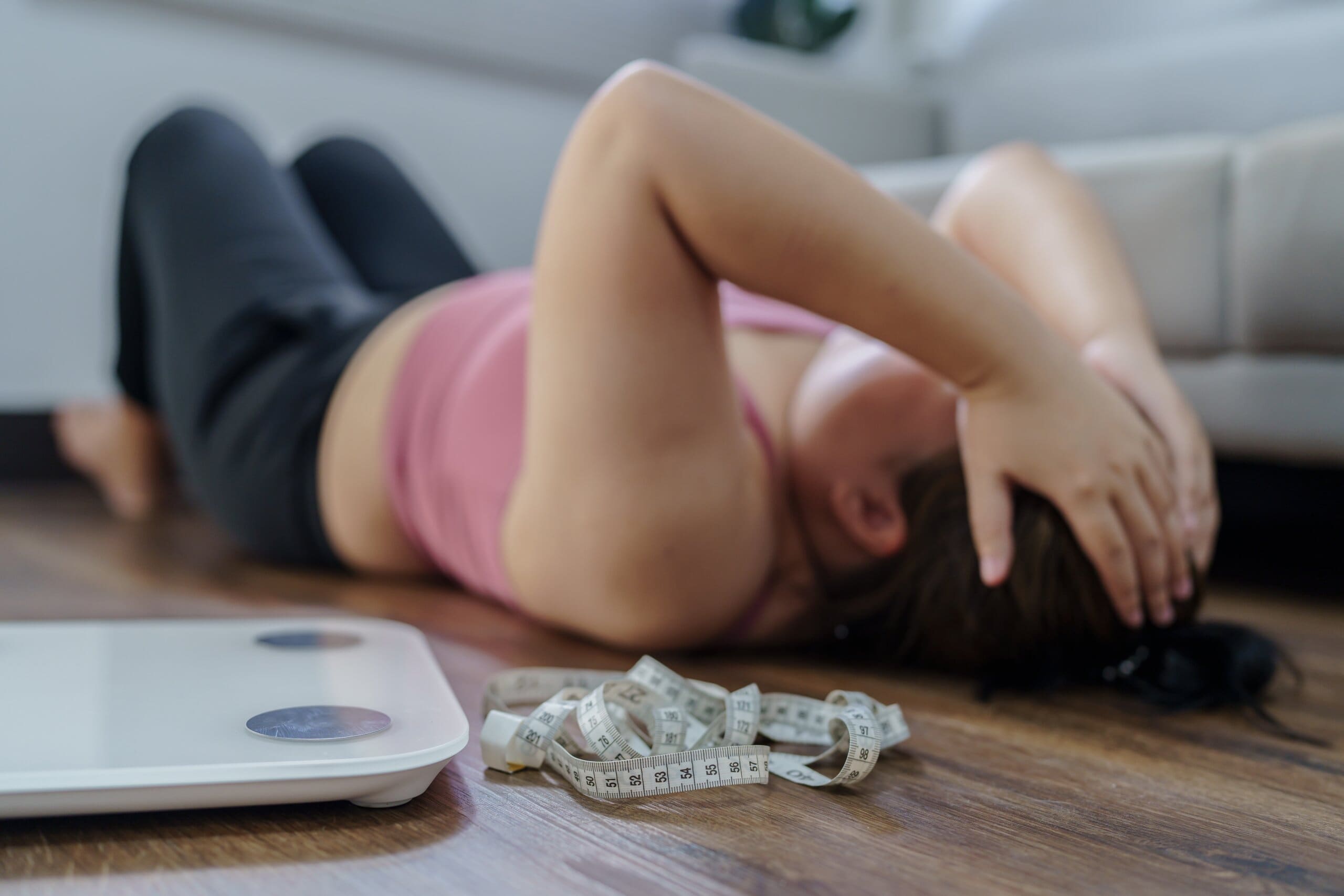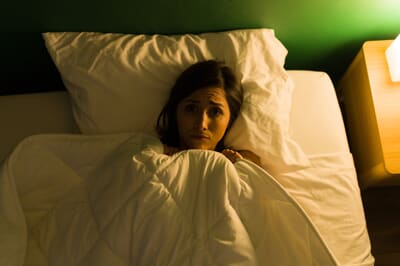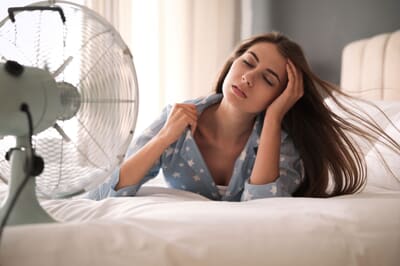Did you know that around 42% of adults across the globe have tried to lose weight at some point in their lives, with roughly 44% of Brits last year alone choosing weight loss as their primary goal for the coming year?
Well, while dropping a few pounds can absolutely have a positive impact on your health, there’s also an increasing number of fad diets circulating out there that promote some pretty unhealthy eating habits, and many of them could be the cause of troubled slumber.
But how bad are these diets really? To find out, the team here at MattressNextDay set out to investigate 12 of the most popular diets in the UK while exploring the common question: can diet affect sleep?
Using MyFitnessPal, we analysed a typical meal plan for 1 day for an average adult on each of these diets. We then collated the data, which shows the breakdown of nutrients in each diet, to see which ones could be having a negative impact on your sleep.

Can dieting affect sleep? What you need to know about fad diets and sleep health
When it comes to modern health plans, many diets promote cutting back on calories, fat, carbohydrates, and sodium while also encouraging an increase in protein. However, going too far in either direction can backfire.
If you’ve ever wondered “how does diet affect sleep,” the answer often lies in these extreme imbalances. Restrictive eating habits can negatively affect your body’s natural rhythms, depriving you of the length and quality of rest you need to function properly.
Dr Deborah Lee of Dr Fox Online Pharmacy says: “Sleep deprivation increases the risk of obesity, diabetes, heart disease, cancer, and dementia. And one of the key underlying reasons for these grim statistics may be because lack of sleep results in changes in the levels of the hunger hormones - leptin and ghrelin.”
Naturally, the less consistent and disruptive your diet, the more disrupted your sleep might be, which is often a hallmark of such ‘fad diets’ like the ones in our investigation. These quick-fix weight loss plans often involve avoiding entire food groups and tend to promote behaviours like weighing every portion to an exact amount or being highly restrictive on calorie intake.
You’ll normally find them promoted by celebrities too, but with little to no real scientific evidence that they work. Worse still, they can leave your body short on the nutrients it needs to support healthy sleep, and over time, poor sleep can lead to much bigger health problems.
Diet and sleep: How popular fad diets could be affecting your rest
The connection between diet and sleep is often overlooked, but certain eating patterns, especially restrictive or extreme ones, can seriously impact how well you rest.
Below, we take a closer look at some of the UK’s most popular fad diets to uncover how they might be quietly disrupting your night’s rest:
The Dukan Diet: 97% sugar reduction could be causing insomnia
A high-protein, low-carbohydrate weight loss plan, the Dukan Diet works in four strict phases, starting with the complete elimination of carbs, including most fruits, starchy vegetables, and, of course, sugar. In our study, the typical day of meals we examined for The Dukan Diet only had 3g of sugar, a far cry from the recommended maximum of 30g set by the NHS.
While sugar has gained a terrible reputation in recent years – you could even say it’s become public enemy number one, cutting it out entirely isn’t always a good thing. It’s no surprise that too much sugar is linked to restless and disrupted sleep, but did you know that too little sugar can also have an adverse effect?
With so few carbs and sugars to fuel the brain, many people experience side effects like anxiety, insomnia, poor concentration, and intense cravings. The zero-sugar trend often stems from celebrities and bloggers or social media hype, but it lacks scientific backing.
In truth, your body needs some carbohydrates and sugars to support healthy serotonin production, which plays a vital role in regulating sleep. So, it’s no wonder your sleep can suffer as a result.
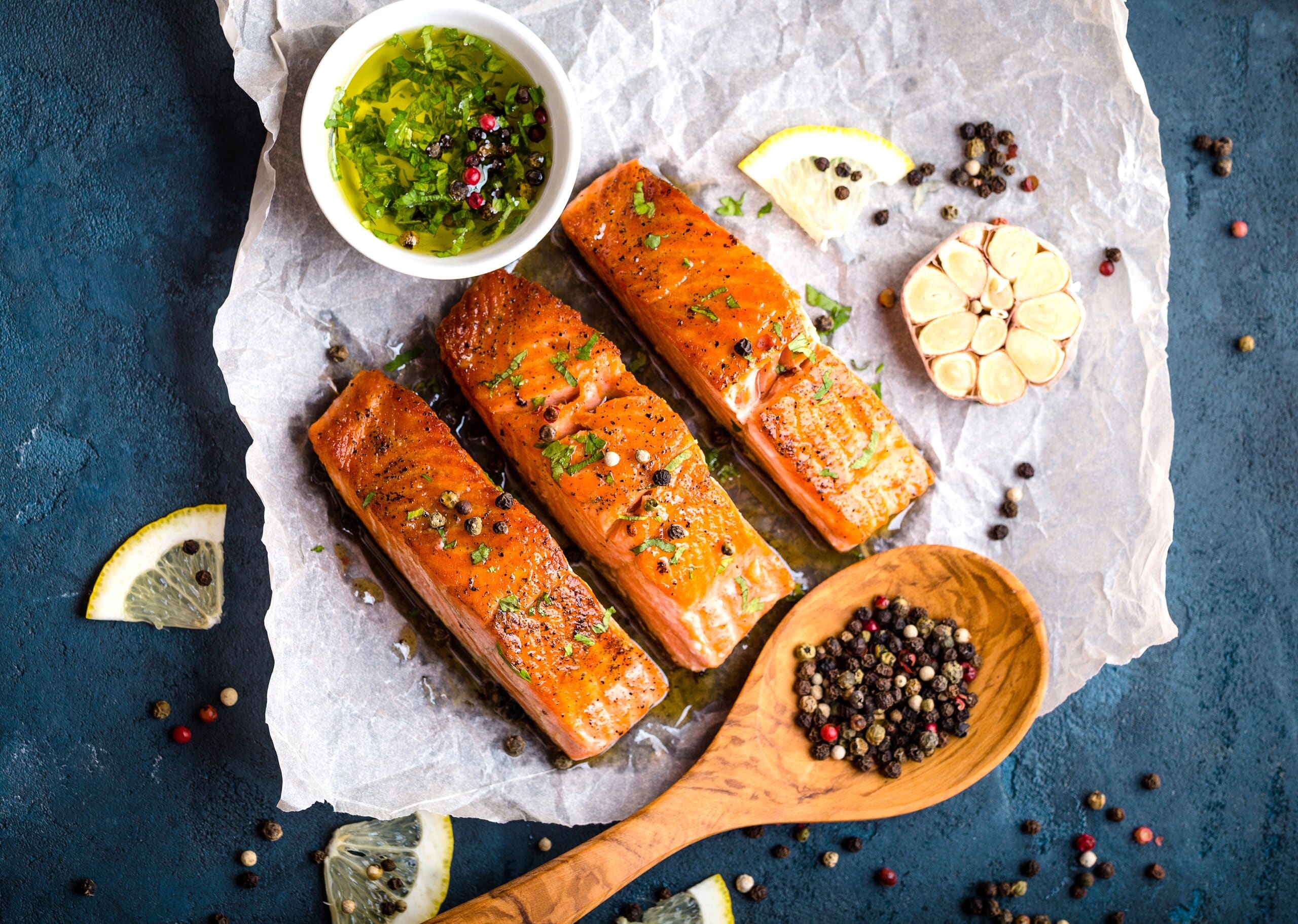
The South Beach Diet: Low carb, high protein intake may disrupt sleep quality
The South Beach Diet is known for its strict low-carb and high-protein approach. Out of all the diets we analysed, it had the lowest carbohydrate content, especially during the initial phase, when carbs are severely restricted, and the highest protein intake, coming in at 92g per day, nearly double the NHS recommendation of 50g.
With just 9% of the minimum amount of carbohydrates recommended by the NHS, this kind of extreme carb-cutting is a classic example of how low-carb diets and sleep problems often go hand in hand.
Many cases online have reported waking up several times through the night and struggling to fall back asleep on this diet. This may be due to hunger caused by the lack of carbohydrates, which play a key role in producing tryptophan and serotonin – two brain chemicals that help regulate sleep.
In fact, Dr Chin-Moi Chow at the University of Sydney even found that high-glycaemic index carbohydrates can hasten sleep onset. On the flip side, protein is essential for repairing tissues and fuelling your body, so it’s no surprise high-protein diets soared in popularity, with a 178% jump in searches for “high protein meals” over the past five years.
Furthermore, a sudden increase in protein intake can leave you feeling nauseous as your body tries to adjust. It can also increase your chances of kidney stones and constipation, both uncomfortable bedtime companions.
Protein also ramps up levels of tyrosine, an amino acid that stimulates alertness. And when you’re also cutting carbs, and, by default, serotonin, that’s a recipe for tossing and turning all night. You might also find yourself dealing with digestive discomfort, especially if you are not used to eating this much protein and vegetables.
Margaret Bell, a transformational health coach from Naturally Empowered Health says:
“Eating a lot of protein can affect sleeping patterns, as high protein can take longer to digest. Depending on how late you're eating, you could be setting yourself up for a fall as your digestive system slows down overnight. The later you eat, the less chance you have for it to be digested and that leads to a disturbed sleeping pattern.”
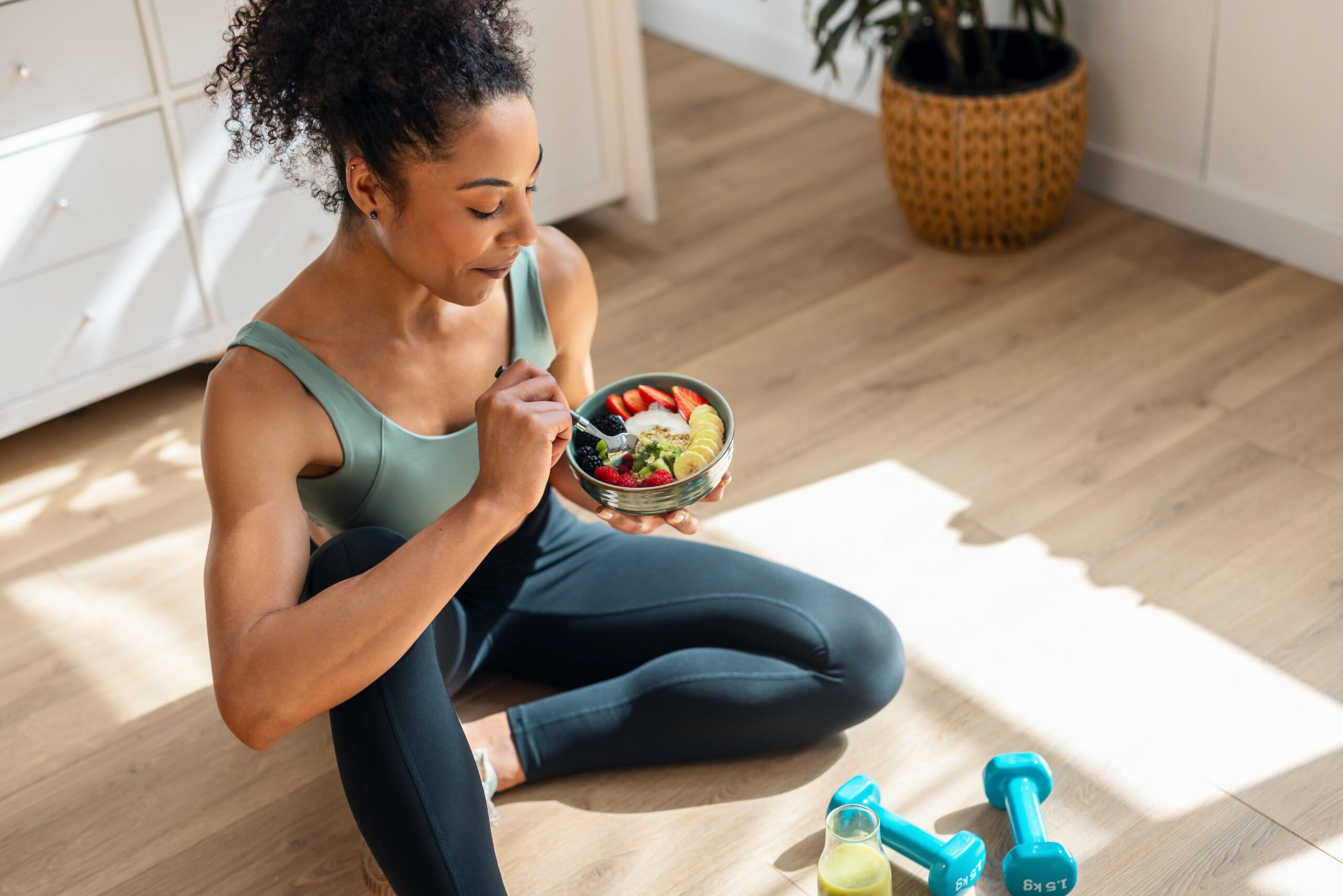
The Macrobiotic Diet: 87% fat reduction linked to cold sensitivity and fatigue
The NHS recommended allowance for fat is a maximum of 70g per day. The Macrobiotic Diet came up short by 87%, with only 9g in a typical day. But what does this mean for your sleep?
If you’re feeling cold and mentally fatigued a lot, then the problem could be that you’re not getting enough fat. A study from 2011 found that calorie restriction caused a reduction in both day and nighttime core body temperature.
Less body fat also means less insulation from the cold, which is why your tolerance to cool environments can decrease when losing weight. Feeling cold and mentally fatigued can, in turn, cause disrupted sleep and insomnia.
In the past, fat has been given a bad rap, but it actually has lots of important roles in the body. Low-fat diets (particularly when low in omega-3 fatty acids) have been linked to poorer quality sleep because these fatty acids are needed to produce serotonin, which is then converted to our ‘sleep hormone’ melatonin and so helps us to get a good night’s sleep.
We also need fat in our diet to absorb certain nutrients, such as vitamins A, D, E, and K. These nutrients all play a role in a healthy body, but higher levels of vitamin D are especially important for healthy sleep as it’s also required to produce serotonin.
The Alkaline Diet: Extreme calorie deficit may lead to fatigue and poor sleep
The Alkaline Diet had the lowest daily calorie count of any of the others we looked at in our investigation, totalling just 576. While this might be slightly higher if you had larger portion sizes or added in some snacks, the number was disturbingly low when compared to the NHS recommended amount for an adult.
It was just over a quarter of the favoured 2,000 calories per day.
The Alkaline Diet is based on the theory that some foods, like meat, refined sugar, wheat, and processed foods, cause the body to produce acid. By eating more “alkaline” food, such as fruits and vegetables, followers believe they can neutralise acidity, improve health, and lose weight.
However, restricting calories this severely for a long time can have serious consequences, including fatigue, nutrient deficiencies, and, unsurprisingly, poor sleep quality.
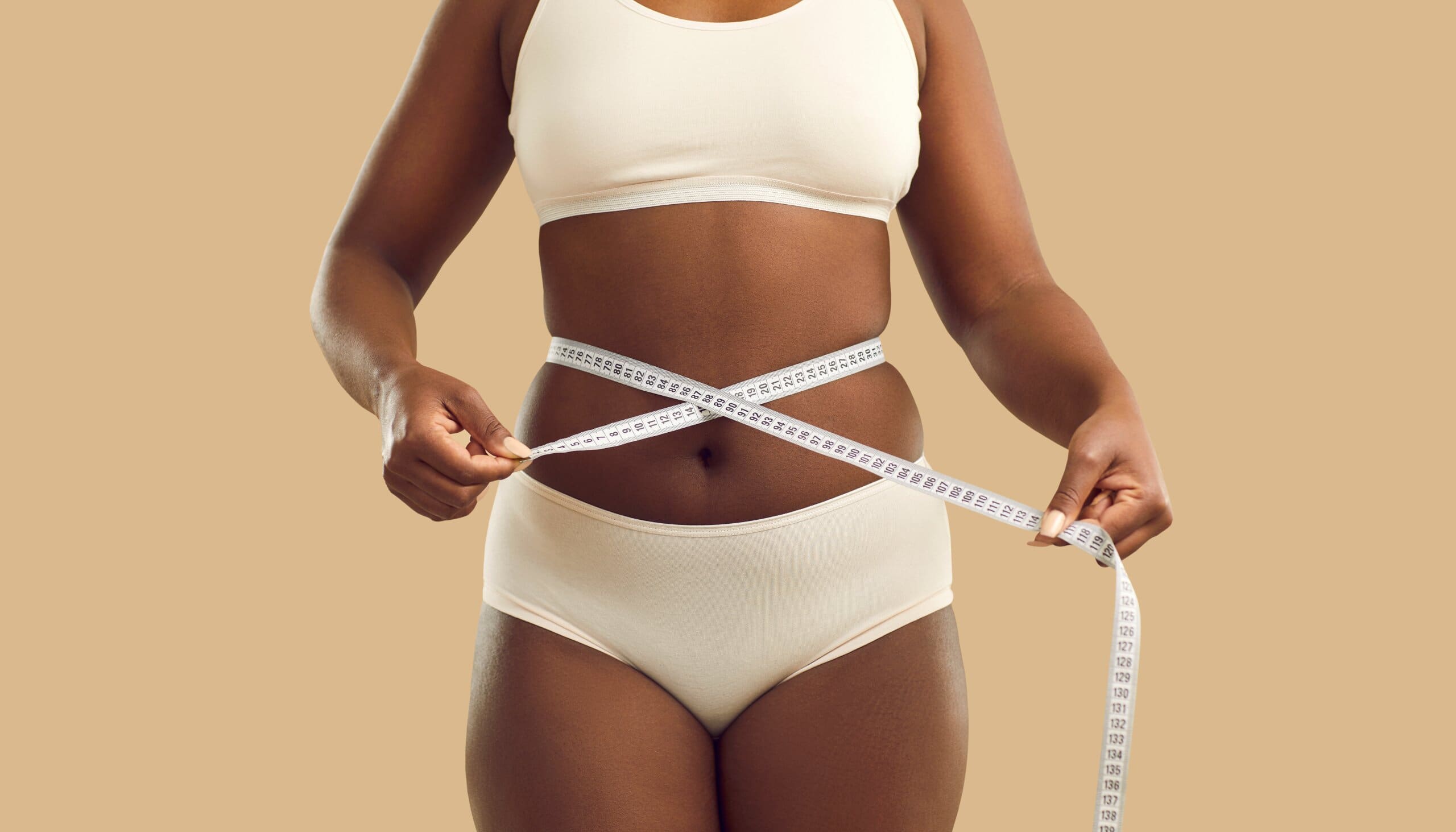
The Atkins Diet: Reduced sodium intake could trigger fitful sleep
In our investigation, The Atkins Diet reduced sodium intake by 51%. It also promotes protein and restricts carbohydrates. This keeps insulin levels low, which is great for burning fat, but not so good for retaining sodium. The diet acts like a diuretic, meaning whatever sodium you ingest, you’re likely to pee out.
While cutting down on sodium is usually a good thing, there are negative side effects if you don’t consume enough.
What happens when you don’t get enough sodium?
Low sodium may cause insomnia because of the increase of stress hormones that result from a low-carb, high-protein diet. When elevated, your main stress hormone, cortisol, is closely linked to disrupted sleep.
A study by Dr. Vitiello, Director of the Sleep and Aging Research Program at the University of Washington in Seattle, also found that low sodium diets can cause fitful sleep, and Margaret Bell agrees, saying:
“Low sodium issues are more common with the elderly and can lead to seizures, but it can also cause fatigue and lethargy, which then could cause people to reach for high energy or sugar-rich food.”
Are low-fat products really better for you?
We’re often told to reach for low-fat options when trying to eat healthily, but are they always the better choice? Margaret from Empowered Health advises caution, warning:
“Be wary of low-fat alternatives, as they may seem like a healthier option, but they are usually high in sugar.”
We looked at some of the products you might buy in your weekly shop to see if this was true. In most cases, the low-fat alternatives contained significantly higher levels of sugar, often added to improve taste and texture after fat is removed.
So, while these products may look healthier on the label, the nutritional reality can be quite different. And higher sugar intake can disrupt sleep quality.
The sugar content of low or reduced-fat products vs full-fat products
Before you toss those full-fat options aside, it’s worth reading the fine print. Sometimes, less fat doesn’t mean healthier, especially when it comes to getting a good night’s rest:
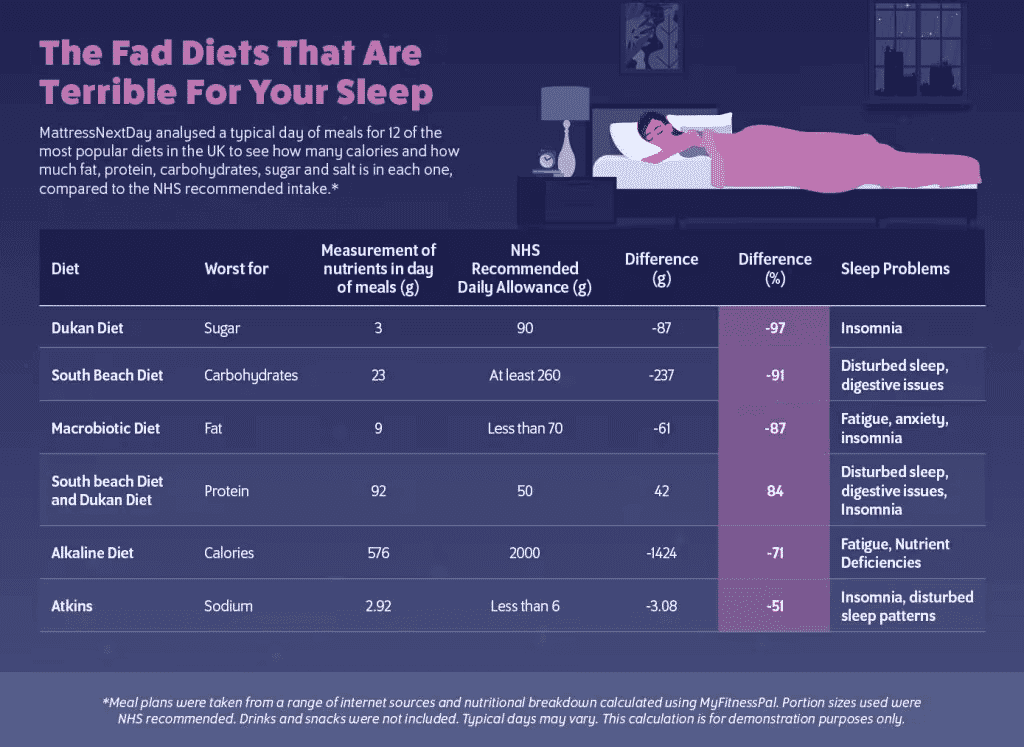
The best diets to follow
If you’re looking for a diet for better sleep that won’t leave you feeling fatigued and foggy, our study highlighted two plans with strong scientific backing and minimal complaints online, both shown to better sleep and overall well-being.
The Mediterranean diet could improve your sleep
The Mediterranean diet is low in red meat, sugar, and saturated fat, and high in fruit, vegetables, nuts, and other healthy foods. In a study on 1,936 Italian adults, it was found that those who ate a Mediterranean diet were much more likely to sleep well compared to those who did not.
Individuals fell asleep faster, slept for longer, slept more efficiently, and were less tired throughout the day.
DASH Diet: A science-backed diet for better sleep
A study in 2019 of adolescent girls aged 12-18, found that a DASH diet was associated with lower odds of insomnia.
The DASH Diet (Dietary Approaches to Stop Hypertension) is usually advised to help prevent and control high blood pressure. Like the Mediterranean diet, it includes lots of heart-healthy foods such as whole grains, nuts, low and non-fat dairy, vegetables, and fruits.
Tips for good health and even better sleep
All the experts we spoke to have some great advice on staying healthy and improving your sleep. We curated their top 5 tips:
1. Balance
When it comes to improving your diet for better sleep, it's all about balance and not forming or encouraging any bad habits. If you have the odd day where you overindulge in your favourite foods, don't feel guilty, and definitely don't starve yourself to make up for it. Just try to be more mindful of what you're eating, and allow yourself to have a treat now and again - restricting yourself will only lead to giving up entirely!
2. Smart snacking
While you might want to focus on balanced meals that centre around fresh, seasonal vegetables, protein, and a healthy source of fat, there are times you'll want a quick snack too. Even though these types of meals are designed to support healthy blood sugar levels and keep you feeling fuller for longer, snacks with high fibre and protein can also keep you feeling satiated so you don't binge before bedtime.
Go for whole-grain crackers with cottage cheese, or strawberries dipped in natural yoghurt to pair with a warm bedtime drink and enhance your sleep!
3. Increasing vegetable intake
Try to add one or two portions of vegetables to every meal to ensure you’re eating a wide range of vitamins, minerals, and fibre. Seasonal is always best, as they’re so much fresher, so check with your local greengrocers or see what your go-to supermarket has just got in the veg aisle.
4. Reduce convenience foods
Much of the added sugar we come across in our diets is found in convenience foods. Reduce your intake of these and you’ll naturally reduce your sugar intake too. If you usually have sugar throughout the day, then you'll go through highs and lows as your system experiences a rush followed by a crash.
Margaret mentioned that: “Foods like these cause stress on your body, whereas slow-releasing food, such as beans, pulses, nuts, whole grains, and vegetables are a much better option.”
5. Don’t diet
Everyone is different, so what works for one person might not work for another, and after all, if diets worked, there wouldn’t be a diet industry. Most diets involve some form of deprivation, and when your body feels restricted, it craves the very things you’re trying to avoid. That’s when the cycle of binging, guilt, and more restriction begins.
Instead of following rigid rules, Margaret advises following the 80/20 rule: “80% of the time eat nutritious dense food, and 20% of the time, allow yourself to have the things you might be craving.” It’s a more realistic, sustainable way of eating and a far better foundation as a diet for better sleep than anything extreme or restrictive.
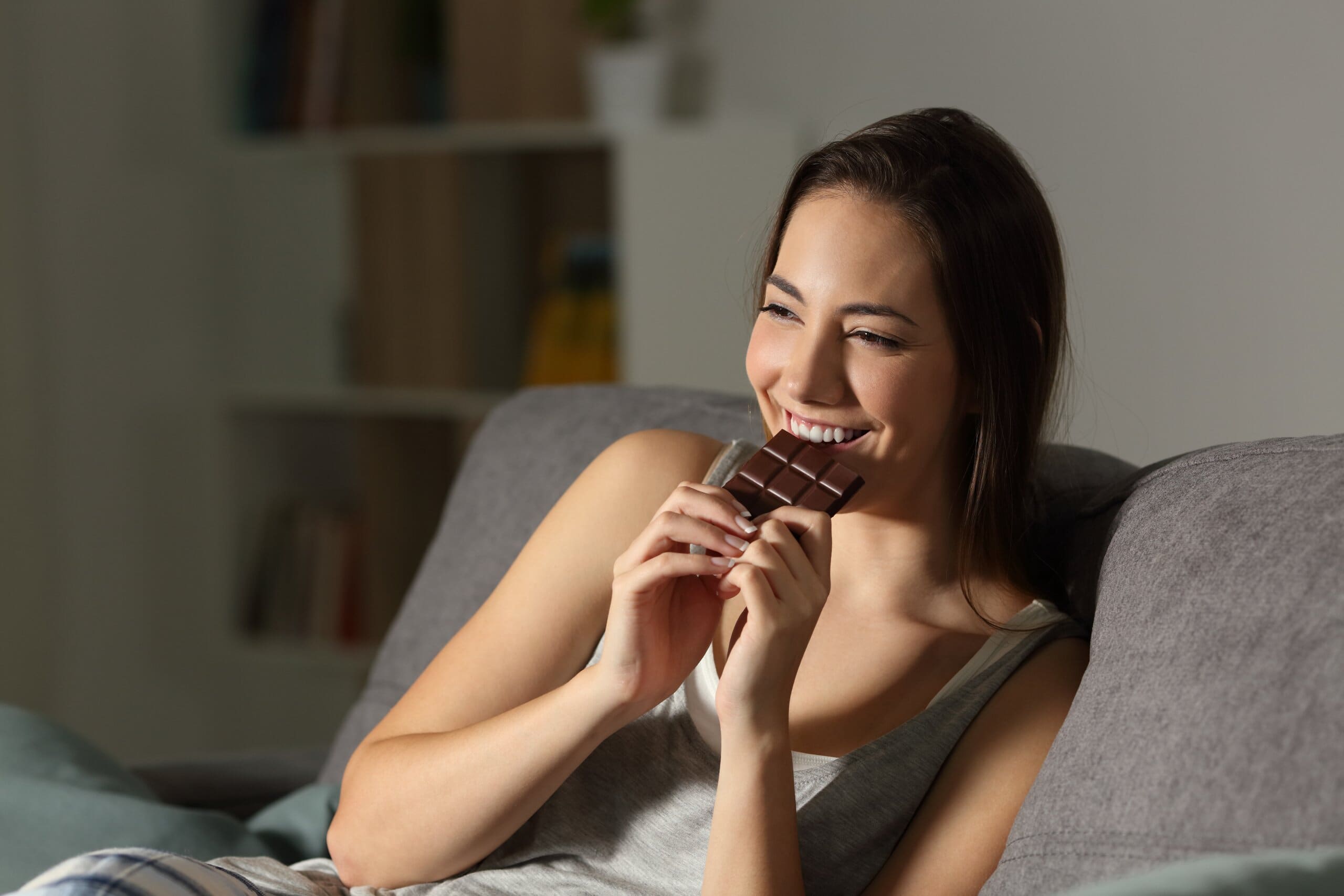
Get better sleep with MattressNextDay
So, while fad diets might promise fast results and flashy transformation, they could be quietly wrecking your sleep behind the scenes. Cutting out whole food groups, slashing calories, or loading up on protein might look good on Instagram, but your body might not agree.
From insomnia-inducing sugar cuts to low-carb tossing and turning, the connection between your diet and sleep is more important than you realise. Your eating habits could be the hidden culprit behind your sleepless nights and groggy mornings.
The good news? You don’t have to choose between health and sleep. Balanced, evidence-based approaches like the Mediterranean or DASH diets are far more likely to support both your waistline and your wellness. You could even opt to discover the benefits of a vegan diet for better sleep, seriously increasing your vegetable intake.
As always, aim for moderation, listen to your body, and remember that no diet is worth sacrificing your zzz’s over. But if you’re still tossing and turning despite eating well, it could be more serious like an underlying sleep disorder, or even that your sleep setup needs a little TLC – which is exactly where we can help!
From a brand new bed to a fresh mattress to replace your old one, we’ve something for everyone in our range. Plus, we've got even more expert advice on improving your rest, such as how long after eating to wait to sleep.
